Discover Effective Anxiety Treatments
Understanding Anxiety
What is Anxiety?
Anxiety is a natural response to stress and can be beneficial in some situations. It can alert us to dangers and help us prepare and pay attention. However, anxiety disorders involve more than temporary worry or fear. For people with anxiety disorders, the anxiety does not go away and can get worse over time. The symptoms can interfere with daily activities such as job performance, school work, and relationships.

Types of Anxiety Disorders
- Generalized Anxiety Disorder (GAD):
GAD involves persistent and excessive worry about various aspects of daily life. People with GAD often anticipate disaster and may be overly concerned about health, money, family, work, or other issues.
- Panic Disorder:
This type of anxiety disorder is characterized by recurrent unexpected panic attacks, which are sudden periods of intense fear that may include palpitations, sweating, shaking, shortness of breath, and a feeling of impending doom.
- Social Anxiety Disorder:
Social anxiety disorder is marked by intense fear and avoidance of social situations. People with this disorder may worry about being judged, embarrassed, or humiliated in social interactions.
- Specific Phobias:
A specific phobia is an intense, irrational fear of specific objects or situations. Common examples include fear of heights, flying, or certain animals.
- Obsessive-Compulsive Disorder (OCD):
OCD is characterized by unwanted and intrusive thoughts (obsessions) and repetitive behaviors (compulsions). People with OCD may perform these behaviors to alleviate the distress caused by the obsessions.
- Post-Traumatic Stress Disorder (PTSD):
PTSD can develop after exposure to a traumatic event. Symptoms may include flashbacks, nightmares, severe anxiety, and uncontrollable thoughts about the event.
Types of Anxiety Disorders
Symptoms of Anxiety

Symptoms of anxiety can vary, but common signs include:
- Feeling nervous, restless, or tense
- A sense of impending danger, panic, or doom
- Increased heart rate
- Rapid breathing (hyperventilation)
- Sweating
- Trembling
- Feeling weak or tired
- Trouble concentrating or thinking about anything other than the present worry
- Difficulty sleeping
- Gastrointestinal (GI) problems
Causes of Anxiety

The causes of anxiety disorders are complex and may involve:
Genetics: Anxiety disorders can run in families.
- Brain chemistry: Imbalances in certain neurotransmitters may play a role.
- Environmental stress: This includes trauma, significant life changes, or ongoing stress.
- Medical conditions: Some health issues can trigger anxiety symptoms.
Treatment for Anxiety
The treatment of anxiety disorders are complex and may involve:
Medications:
- Anti-anxiety medications (e.g., benzodiazepines)
- Beta-blockers (to manage physical symptoms)
Therapies:
- Cognitive-behavioral therapy (CBT)
- Exposure therapy & Realaxation Training
- Acceptance and commitment therapy (ACT)
Lifestyle Changes:
- Regular physical activity
- A healthy diet
- Adequate sleep
- Stress management techniques (e.g., mindfulness, meditation, yoga)
Coping Strategies
Here are some strategies to help manage anxiety:
- Stay physically active
- Practice mindfulness and relaxation techniques
- Connect with supportive friends and family
- Limit caffeine and alcohol
- Seek professional help when needed
When to Seek Help
If anxiety is interfering with your daily life, it’s important to seek help from a mental health professional. Early intervention can prevent anxiety from worsening and help you regain control of your life.
Choose the Right Anxiety Treatment for You.
You've taken the first step now let us help you find the right support
Recognizing Clinical Depression
– Lasting sadness
– Loss of interest in most activities
– Constant fatigue or low energy
– Negative thoughts
– Feelings of worthlessness, hopelessness, or guilt
– Difficulty concentrating on daily tasks
– Changes in eating and sleeping patterns
– Restlessness or irritability
– Physical aches and pains without a clear cause
– Thoughts of death or suicide
Signs Your Child
Needs to See a Child psychiatrist
Recognizing when your child may need to see a psychiatrist is crucial for addressing their emotional and mental well-being. Here are some signs that may indicate it’s time to consider seeking help from a Child Psychologist in Calicut:
- Your child is dealing with a significant change or a stressful situation, like bullying, a health issue, divorce parents, or a move to a new city or school.
- Your child's mental, emotional, and behavioral problems seem to be getting worse over time instead of better.
- Your child or family has experienced trauma, such as a death, an accident, or abuse.
- Your child encounters challenges when it comes to forming and maintaining friendships.
- You notice big notable shifts in your child's temperament and behavior.
- They often have trouble with their behavior in school.
- Your child is worrying to much for trivial things
- Your child's grades are dropping.
Common Conditions Addressed at Our Center
Clinical child psychology is a field dedicated to researching, evaluating, and addressing a broad spectrum of interconnected biological, psychological, and social challenges encountered by children.

ANXIETY
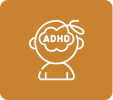
ADHD

DEPRESSION

AUTISM

LEARNING PROBLEMS

BEHAVIOURAL PROBLEMS

ADJUSTMENT PROBLEMS

STRESS
At Mind Weavers, our Child Psychologists are well-versed in the latest evidencebased interventions, providing personalized counseling to address the unique needs of each child.
Skills and Procedures Utilized
Clinical child psychology encompasses a wide range of procedures and skills addressing your child’s needs, including:
- Assessment (e.g., psychological, intellectual, cognitive, and behavioral evaluation).
- Intervention (e.g., psychotherapy and applied behavior analysis).
- Prevention program development (e.g., school readiness,bullying, addictions, obesity).
- Consultation with transdisciplinary team
- Evidence based Practices

Services Offered By Our Center
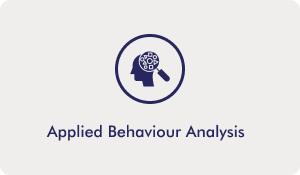


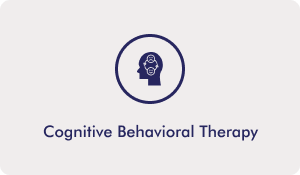
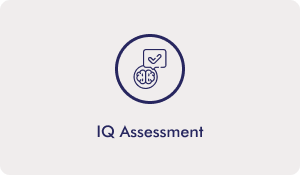
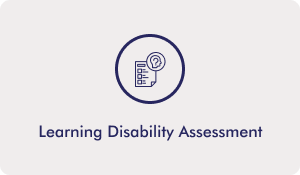


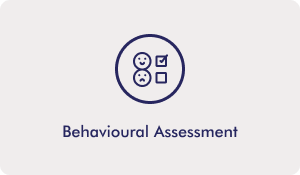
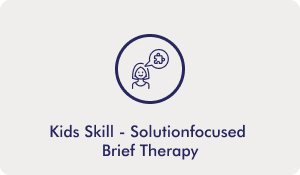
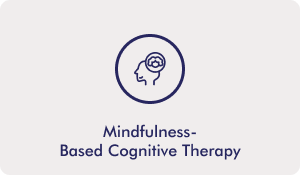
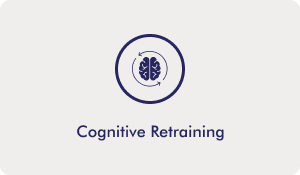


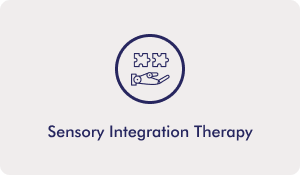

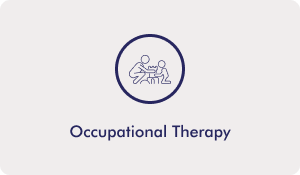
These services are administered by experienced and compassionate clinical psychologists and therapists that ensure your child receives the care and support they need to lead healthier and more fulfilling lives.
Frequently asked questions
Anxiety is a normal response to stress or danger and can be beneficial in some situations. However, when it becomes excessive, uncontrollable, or interferes with daily life, it may be classified as an anxiety disorder.
Common symptoms of anxiety include:
– Excessive worry or fear
– Restlessness or feeling on edge
– Fatigue
– Difficulty concentrating
– Irritability
– Muscle tension
– Sleep disturbances (difficulty falling or staying asleep)
Anxiety disorders can be caused by a combination of genetic, environmental, and psychological factors. Stressful life events, trauma, and certain medical conditions can also trigger or exacerbate anxiety.
A healthcare professional will evaluate your symptoms, medical history, and may use screening tools or questionnaires to diagnose anxiety. It’s important to be open and honest about your symptoms for an accurate diagnosis.
Treatment options for anxiety include:
– Psychotherapy, such as cognitive-behavioral therapy (CBT) or exposure therapy
– Medications, such as anti-anxiety medications or antidepressants
– Lifestyle changes, including regular exercise, healthy eating, and sleep hygiene
– Relaxation techniques, such as deep breathing, meditation, or yoga
– Support groups or counseling
Supporting someone with anxiety involves:
– Encouraging them to seek professional help
– Listening without judgment
– Offering emotional support and reassurance
– Helping them with daily tasks if needed
– Being patient and understanding
It’s normal to feel anxious occasionally, especially in response to stressful situations. However, if these feelings are persistent and interfere with daily life, it may be a sign of an anxiety disorder.
If you think you might be depressed:
– Reach out to a mental health professional for help
– Talk to trusted friends or family members about your feelings
– Engage in activities you enjoy, even if it’s difficult
– Take care of your physical health through exercise, nutrition, and sleep
– Avoid alcohol and drugs, which can worsen depression
Help for anxiety can be found through:
– Mental health professionals, such as psychologists, psychiatrists, and counselors
– Mental health clinics or organizations
There are several types of anxiety disorders, including:
– Generalized Anxiety Disorder (GAD)
– Panic Disorder
– Social Anxiety Disorder
– Specific Phobias
– Obsessive-Compulsive Disorder (OCD)
– Post-Traumatic Stress Disorder (PTSD)
Mind Weavers for Adult Psychology -
Why We're Different?
✨Experience:
Mind Weavers stands out in the field of adult psychology for several reasons. Our team of licensed professionals brings a wealth of experience in dealing with adult psychological issues. We understand that adulthood is a time of significant transition and are committed to helping you navigate this period with empathy and expertise.
✨Understanding Issues from The Root:
We support a comprehensive strategy for mental health. Hence, it means we don’t just focus on your symptoms; we explore the root causes of your challenges. Therefore, by addressing these underlying issues, we aim to provide long-lasting solutions that improve your overall well-being.
✨Supportive Environment:
Another reason to choose Mind Weavers is our commitment to creating a supportive environment. We know that discussing mental health can be difficult, which is why we prioritize creating a safe, non-judgmental space. Our goal is to make you feel comfortable and heard, ensuring that you can openly discuss your concerns and challenges.
✨Flexible Treatment Plans:
Additionally, we offer flexible treatment options tailored to fit your lifestyle. So, whether you prefer in-person sessions or online consultations, we make it easy to access the help you need. Our flexible scheduling and various therapy modalities ensure that you can find the right fit for your needs.
Therefore, take the first step towards a healthier adulthood by choosing Mind Weavers. Your mental well-being deserves the best care, and we’re here to provide it.
Choosing Mind Weavers for
Your Child's Well-Being
At Mind Weavers, our aim is to have a happy, playful, and confident child.
We prioritize your child’s well-being and offer top-quality mental health services to support their growth and happiness. Our dedicated professionals including child psychologists, therapists, and counelors help children overcome challenges, develop crucial life skills, and thrive emotionally.
At Mind Weavers, you’re choosing more than specialized services; you’re selecting a caring and nurturing environment that fosters resilience, self-assurance, and a positive outlook.


